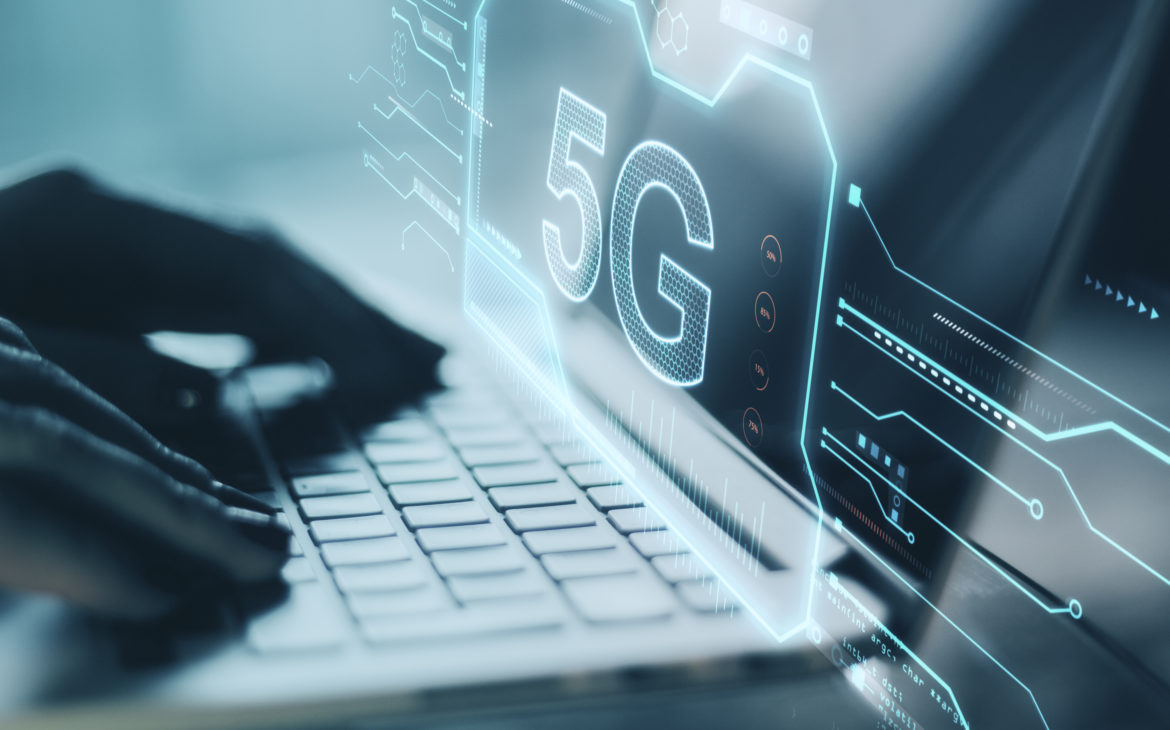They will need 5G computers with all the features of the most powerful smartphones, and more.
While at first glance it may seem that the 5G revolution is focused only on telecommunications and smartphones, it is a technological trend that affects literally everything that uses the internet – including personal computers. Laptop models with a built-in 5G modem and other necessary 5G (radio frequency) technologies (antennas and chips) have existed for over a year and are currently used by people who have to move around a lot because of work, often in areas where there is no Wi-Fi, let alone fixed internet access. But do the rest of us need a 5G PC? Of course. We can get it in one of two ways: by upgrading an old laptop, which is quite expensive and technically demanding, or investing in a 5G PC. Then we can donate the old computer to someone who does not yet have one.
Secure communication and data exchange
Besides convenience and the desire for constant connection, the main reason for purchasing a 5G laptop is security. Every business has its secrets, so it should not be done over publicly available wireless networks in cafes, hotels, stations, buses, airports, and other busy areas. This does not mean that 5G networks are completely protected from hacker attacks, but they are much harder to breach than the public Wi-Fi networks. The entire IT industry is working on that defense, from Microsoft – which enhanced the protection of its latest (Windows 10 and 11) operating systems – and other 5G PC manufacturers to the various developers of specialized 5G cybersecurity software.
The other reason is the quality of data exchange – less delay (low latency) in data transmission over 5G networks. This became extremely important during the pandemic. These days, everyone uses video conferencing tools, be it for business, entertainment, or personal communication. Instant messaging tools are part of our daily life. Everyone uses at least one teamworking (collaboration) platform. And we use it all constantly and simultaneously, so the connection needs to have much more bandwidth than current mobile networks. 5G is significantly faster than any other wireless network, so you can access information on your company server or a cloud where your company keeps the data from your 5G laptop in the blink of an eye. There is also a limit on the speed of internet access indoors – most existing 5G laptops have built-in “sub-6” 5G technology, however, once the mmWave becomes more widespread, this will also be resolved.
Non-stop online
5G PCs don’t need a hotspot (Wi-Fi), so you don’t have to look around for the internet, and you don’t need a password to access the network either. The 5G PC is constantly online. And you don’t have to log in. The downside is that 5G access from a laptop (as opposed to Wi-Fi access) costs a lot, so this option is now only available to the employees of companies that can afford it and those whose professional duties require highly secure communication (members of various “three-letter agencies”, for example). However, as the number of users grows, telecommunication network operators will lower their prices, so 5G laptops and access tariffs will be more accessible to the general population.
8 million 5G laptops
According to the latest research from Strategy Analytics, over ten million 3/4/5G-enabled laptops were sold around the world last year. Most of them were compatible with 4G/LTE standards. Nearly half were bought in North America, and the rest were sold in Europe and Southeast Asia. The report estimates that more than 26 million cellular-enabled PCs are now in use worldwide (a 25 percent increase in just a year), and about 3 percent (nearly eight million) of these devices are 5G laptops. Strategy Analytics also expects 5G to build this share towards 69 percent in less than five years, by 2025.
As for the models, it will forever be written in the annals of the global telecom and ICT industry that Lenovo Yoga was the first 5G laptop, but today, two years later, there are many more of these devices. As for the latest ones, check out, for example, Samsung Galaxy Book Go 5G, Lenovo ThinkPad X1 Titanium Yoga, Dell Latitude 9520, HP Elite Folio – to see which one has the configuration (and price) that best matches your wants and needs. All are available (or will be available soon) in Croatia as well.
